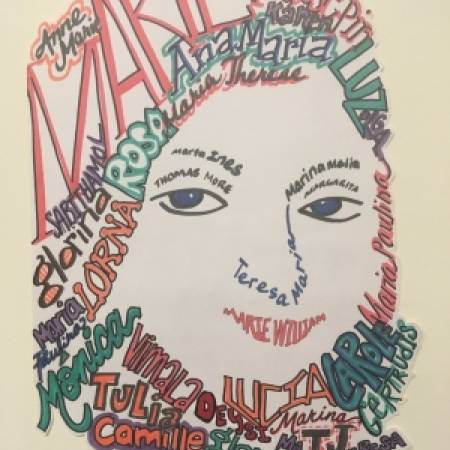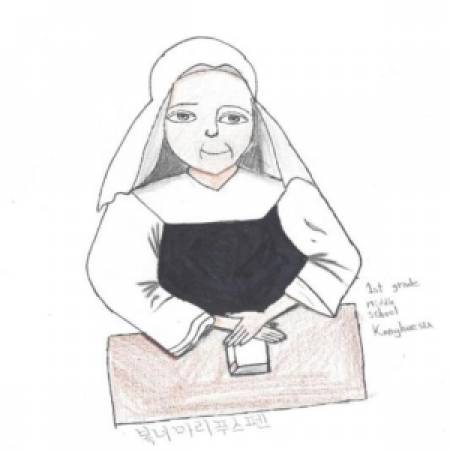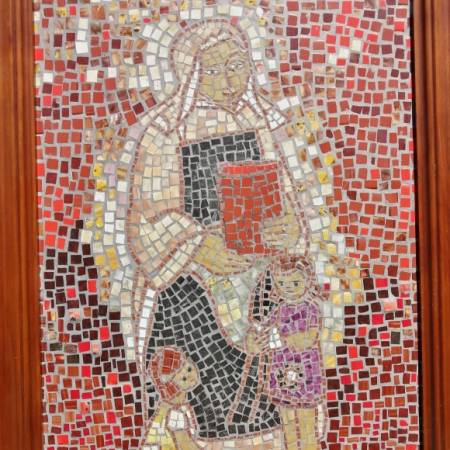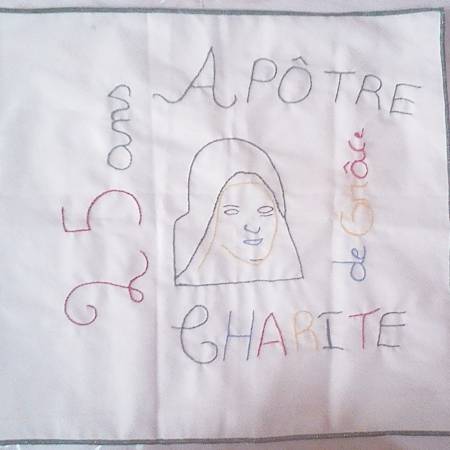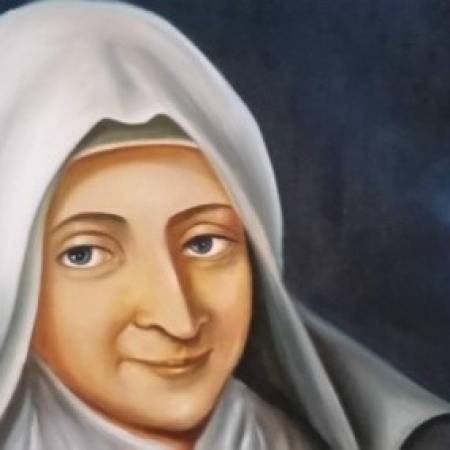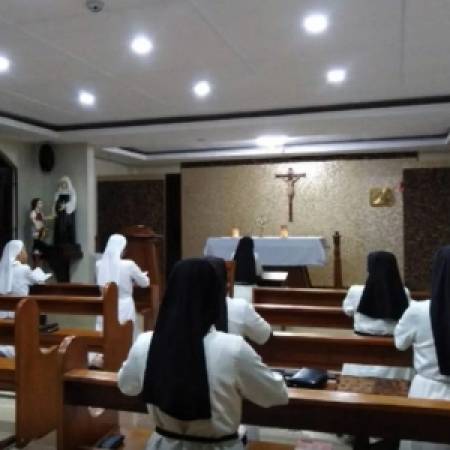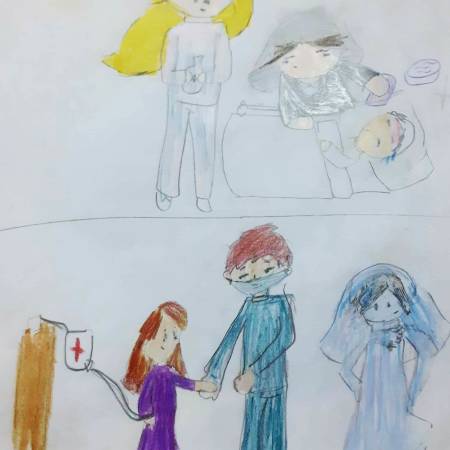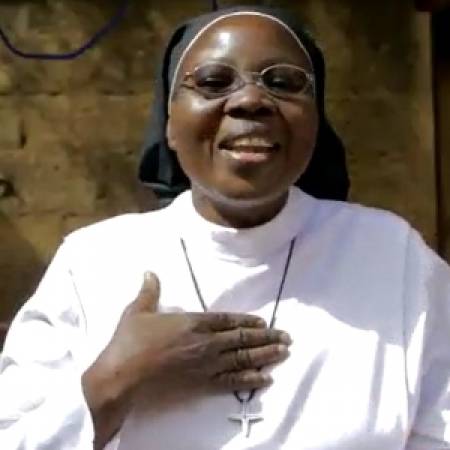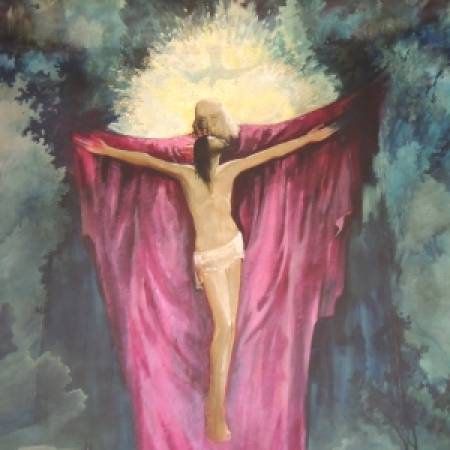Ouagadougou (Africa), 10/03/2020, Sr. Blandine Kiendrebeogo and Sr. Pélagie Kabore.- We would like to share with you our interview with the aspirants from the Ouagadougou region. During this year in the Vice-Province of Africa the camp for aspirants was organized by region.
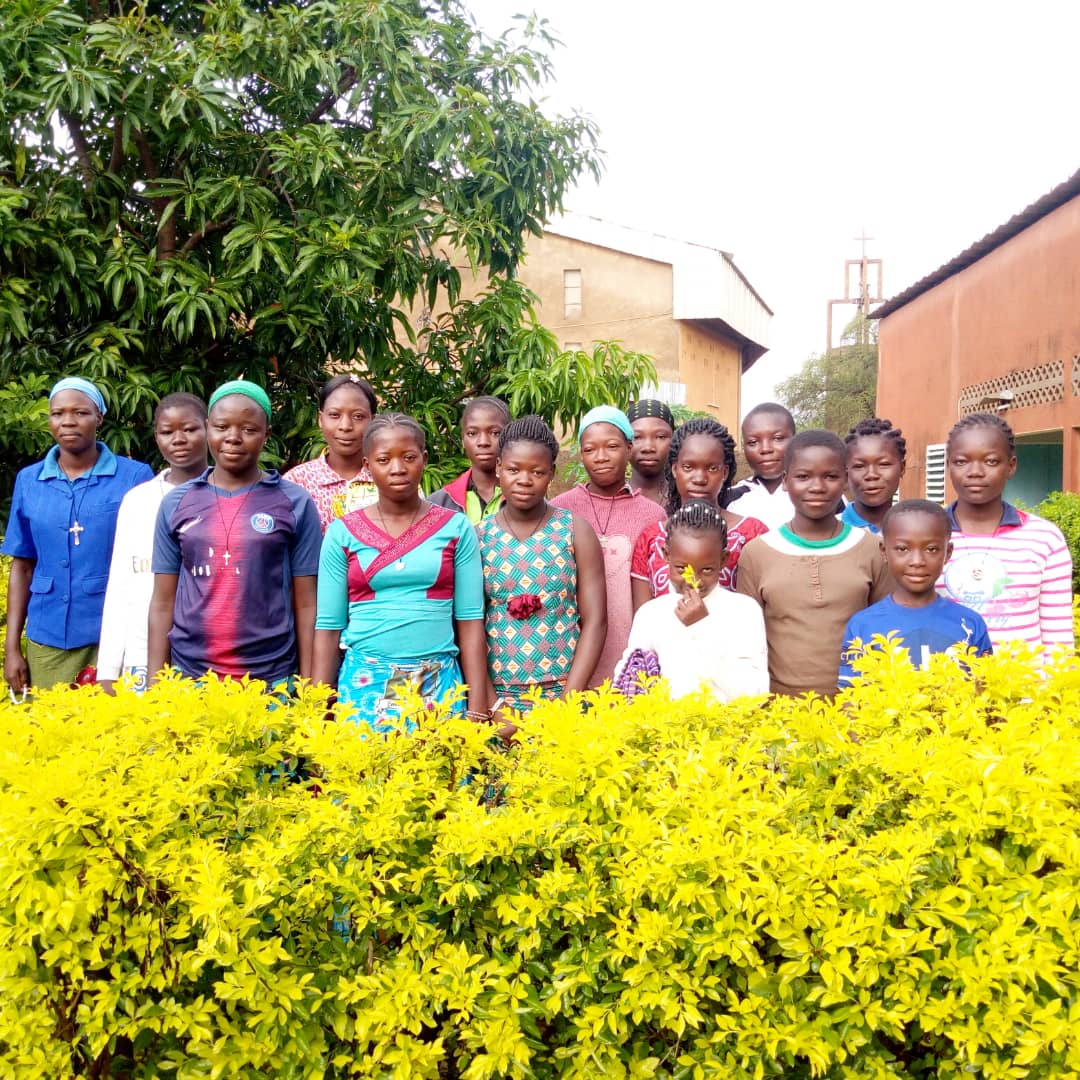
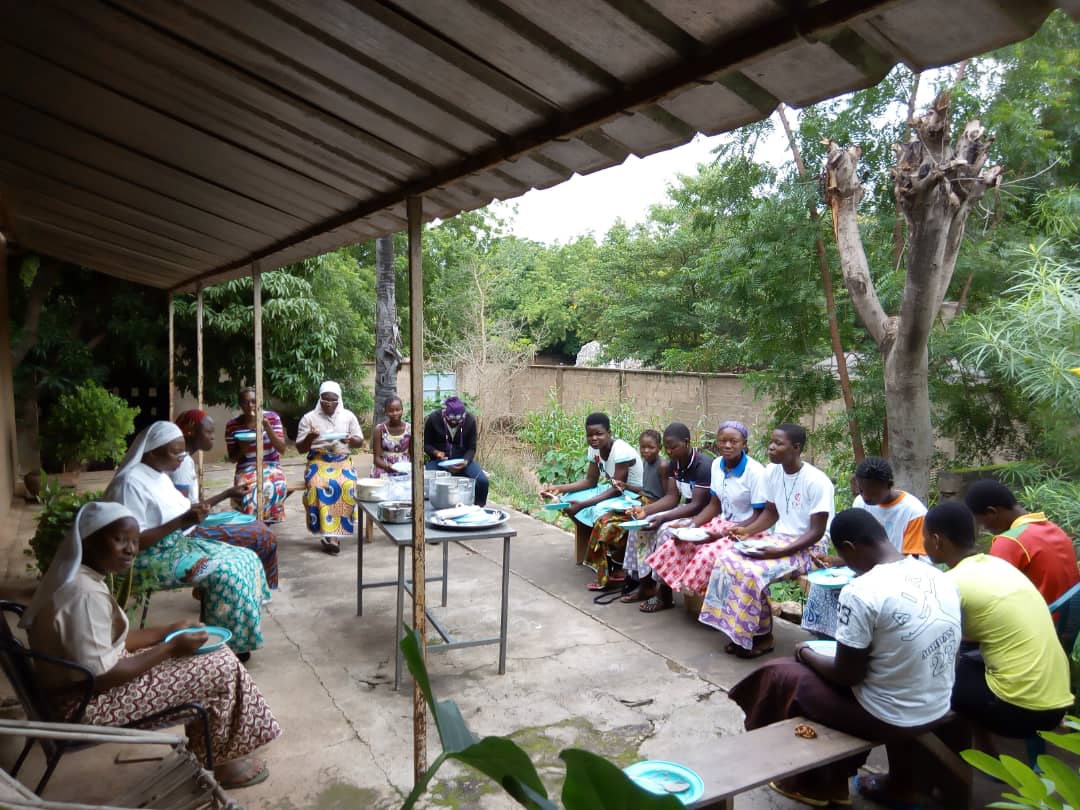
Introduction
Marie Poussepin, a woman of her time, was born in 1653 in a prosperous town called Dourdan in France. She received a good basic education in her family. Both of her parents were fervent Christians. Her father was the chaplain (sacristan) of the parish and her mother was treasurer in a charity work of Saint Vincent de Paul. Following in her mother's footsteps, Marie Poussepin also became involved in this charitable confraternity. At a very young age, she let herself be incarnated by the theological virtue: charity. Let us remember that the family was for Marie Poussepin her first school which initiated her into the service of charity. Since her childhood, as we can see, she has been involved in this ministry with her mother, and she is increasingly affirmed in it through her service to the poorest and sickest. Through assiduous meditation on the Word of God, prayer and contemplation, she is rooted in faith and in the knowledge of God.
In 1696, touched by the misery and suffering of the inhabitants of Sainville, she left Dourdan, the prosperous town where she was born, to go and live in this village ravaged by the epidemic, ignorance and famine, to name but a few. There she founded a community of the Third Order of Saint Dominic, for the usefulness of the parish, the care of the sick and the education of the youth.
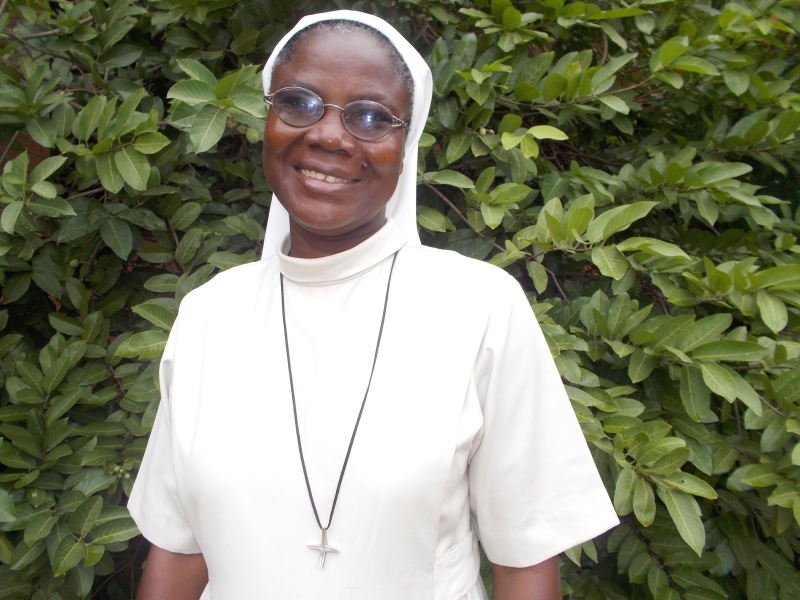 Hna. BlandineVery soon her congregation flourished and was much appreciated. Many young girls joined her in the following of Christ. Her work spread throughout the world (37 countries) through the missionary dedication of her sisters.
Hna. BlandineVery soon her congregation flourished and was much appreciated. Many young girls joined her in the following of Christ. Her work spread throughout the world (37 countries) through the missionary dedication of her sisters.
The charity of Marie Poussepin
"Charity must be the soul of the Congregation".
The whole life of Marie Poussepin was charity, she imitated the life that our Lord Jesus led on earth. Like the Good Samaritan, she understood so early on that the whole Gospel consisted in loving God and neighbor; a disinterested and unconditional love, which welcomes each person and makes itself close beyond all social or religious cultural differences. Her service does not exclude anyone, but the poor have her preference and solicitude: "have no less love for the poor than for the rich", "love first what is most in need". Throughout his life, his charity was only gratuitous; it was also the secret of his devotion, the strength of his apostolate and the raison d'être of his institute and his concerns. Marie Poussepin became aware that she had to be in the house of the Father and take care of his works. Luke 2:49. She had consecrated herself to God in the depths of her heart as Mary did when she was presented to the Temple.
In addition to her apostolic commitment, Marie Poussepin with a spirit of wisdom like that of Solomon knew how to discern to transform the traditional industry and commerce of her hometown. She knew how to combine the spiritual and the temporal in an effective charity (making silk stockings).
We already see in her the image of the social apostle of charity, who, beyond the work to which she dedicates herself, seeks to set man upright for the glory of God. This is indeed what the Church aims at when it comes to work. (Social Doctrine of the Church).
Its charity has its source in the love of God; it is nourished by prayer, study and contemplation of the Word, seeking only the glory of God and the good of one's neighbor; it expects everything from God and all its actions are done in a sincere desire to please God. The key to her compassion lies in her loving relationship, friendship and intimacy with the Lord who renews her and encourages her to help her brother in need and to bring him his love and mercy. Marie Poussepin remains united to God and that is why her preaching becomes good news for the poor and sick of Sainville.
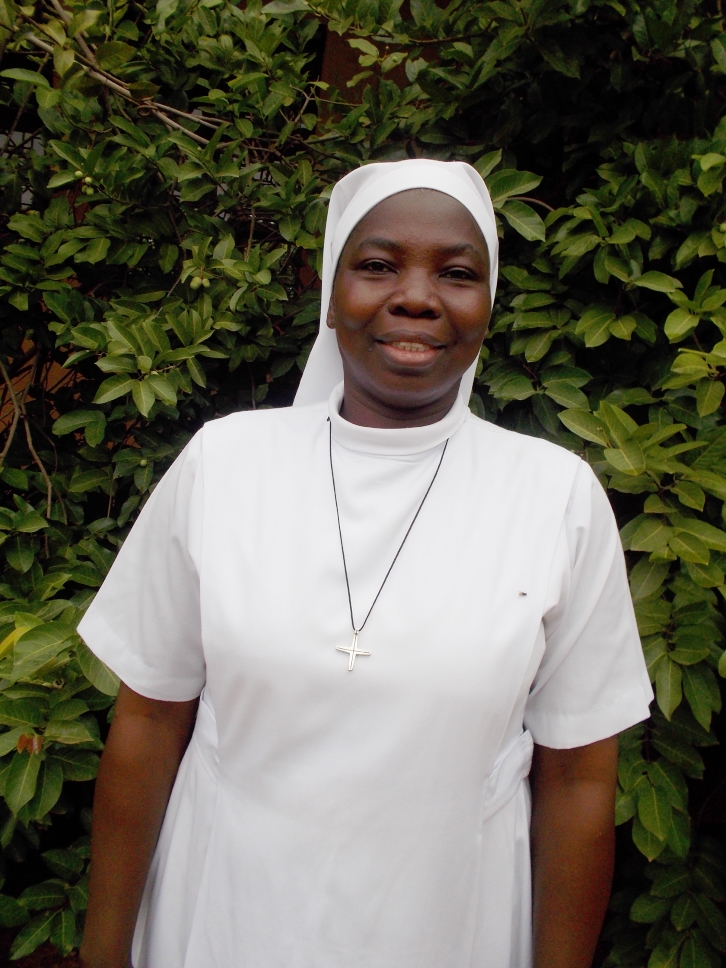 Hna. PélagieThe love of God practiced in works of mercy, both spiritual and bodily towards one's neighbor, is the characteristic of her spiritual physiognomy. Such charity requires certain values and Marie Poussepin knew how to incarnate them to make them into family traits.
Hna. PélagieThe love of God practiced in works of mercy, both spiritual and bodily towards one's neighbor, is the characteristic of her spiritual physiognomy. Such charity requires certain values and Marie Poussepin knew how to incarnate them to make them into family traits.
Family traits
Marie Poussepin experienced this disinterested and unconditional love in work, simplicity and poverty. Thus, through work Marie Poussepin provided for the needs of the family after the death of her parents and for the needs of her institute. Also through work Marie Poussepin came to the aid of the poor, the sick and the most destitute. For Marie Poussepin, work reveals a very important aspect of her life. Marie Poussepin recommends to her sisters to make work a characteristic feature of the life of the congregation. For Marie Poussepin, it is through work that her sisters will achieve the fulfilment of the mission entrusted to them (to relieve the suffering of the poor, the sick and the most destitute).
It was in simplicity that Marie Poussepin carried out her work of charity and this simplicity was evident in everything she did and in her closeness to poor and sick people, which was her preference. Her compassion nourished by her simplicity led her to welcome Marie Olivier, a poor old widow, in her room until her death. From this act, Marie Poussepin leaves a living testimony of simplicity and charity to her sisters.
In spite of the prosperity of her native town, Marie Poussepin chose to divest herself to go and live in the humble village of Sainville where misery and poverty raged. Like Christ who made himself poor by taking on our divine condition, Marie Poussepin chose to live poorly at last to enrich her brothers and sisters who were in misery and ignorance. Her desire to live the evangelical counsels in their entirety led her to this stripping of all her possessions for the benefit of the poorest.
Marie Poussepin therefore recommends that her sisters consider her values of work, simplicity and poverty as family traits.
Conclusion
We remember Marie Poussepin as a dynamic, determined and charitable woman. Having seen what was good and beautiful in the eyes of God, Marie Poussepin accomplished it. Thanks to her devotion and her life totally given to God and men, her heroism was recognized in this virtue of charity, so much so that at her Beatification in 1994, the Church recognized her and declared her "Social Apostle of Charity".
1994 - 2019, it is already 25 years since Marie Poussepin has been counted among the blessed of the Church, and it is this life of holiness that is the object of our thanksgiving to God in this jubilee year of her beatification. To celebrate a year of grace is to express our gratitude to the provident God, who has watched over his servant and his work since its creation. It is also for us an invitation to imitate Marie Poussepin, the social apostle of charity, in order to show a renewed look of mercy towards our world which is in the grip of new crises (violence, insecurity, the disease of Covid 19).
We believe that this sharing will allow us to re-read this creative charity of our mother foundress, and to express our faith in our living environment, whatever our state of life may be.


 EN
EN  ES
ES  FR
FR 






